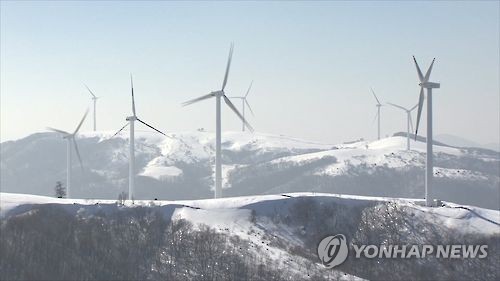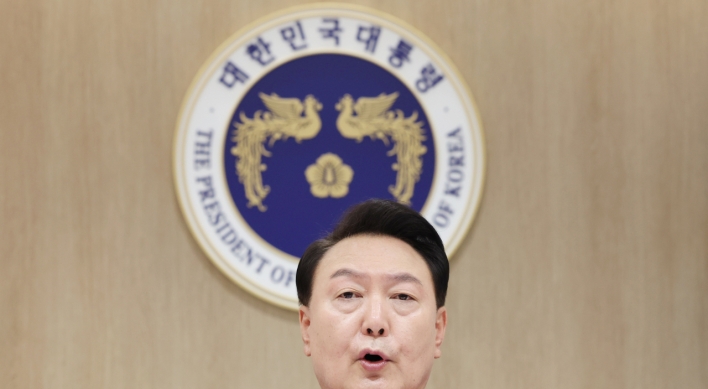South Korea unveiled a set of measures on Tuesday to promote renewable energy usage and expand research and development in order to meet the long-term target of reducing greenhouse gas emissions by 37 percent.
The plan, approved by the Cabinet chaired by Prime Minister Hwang Kyo-ahn, is aimed at changing the country's energy structure into a more environmentally friendly power supply system and preparing for the upcoming low-carbon era, according to the Ministry of Strategy and Finance.
South Korea earlier announced a road map to cut greenhouse gas emissions by 37 percent, or 3.15 million tons, from business-as-usual (BAU) levels by 2030 ahead of the launch of a new climate regime after 2020 led by the United Nations.

"Facing a new growth paradigm, South Korea has mapped out a master plan to deal with a new climate regime," the ministry said in a statement. "We will focus on transforming the energy-consuming economic structure into a low-carbon system, and on increasing preparedness for climate change."
In order to achieve the target, the government will not allow new coal plants to be built in the country and, instead, increase green energy supplies using solar power and biomass.
The ministry said it will raise its scheduled renewable portfolio standard (RPS) to 5 percent in 2018 from the earlier target of 4.5 percent.
The rate will go up to 6 percent in 2019 and to 7 percent in 2020, up from earlier goals of 5 percent and 6 percent, respectively.
An RPS is a regulation that requires electricity supply companies to produce a certain portion of their energy from renewable energy sources such as wind, solar, biomass and geothermal. For 2016, the RPS is set at 3.5 percent.
Also, the public sector will inject 1.12 trillion won ($954.2 million) into R&D of the clean energy area by 2020, up from 560 billion won earmarked for 2016, while companies will be given additional carbon emissions rights when they expand investment into environment-friendly facilities. (Yonhap)
The plan, approved by the Cabinet chaired by Prime Minister Hwang Kyo-ahn, is aimed at changing the country's energy structure into a more environmentally friendly power supply system and preparing for the upcoming low-carbon era, according to the Ministry of Strategy and Finance.
South Korea earlier announced a road map to cut greenhouse gas emissions by 37 percent, or 3.15 million tons, from business-as-usual (BAU) levels by 2030 ahead of the launch of a new climate regime after 2020 led by the United Nations.

"Facing a new growth paradigm, South Korea has mapped out a master plan to deal with a new climate regime," the ministry said in a statement. "We will focus on transforming the energy-consuming economic structure into a low-carbon system, and on increasing preparedness for climate change."
In order to achieve the target, the government will not allow new coal plants to be built in the country and, instead, increase green energy supplies using solar power and biomass.
The ministry said it will raise its scheduled renewable portfolio standard (RPS) to 5 percent in 2018 from the earlier target of 4.5 percent.
The rate will go up to 6 percent in 2019 and to 7 percent in 2020, up from earlier goals of 5 percent and 6 percent, respectively.
An RPS is a regulation that requires electricity supply companies to produce a certain portion of their energy from renewable energy sources such as wind, solar, biomass and geothermal. For 2016, the RPS is set at 3.5 percent.
Also, the public sector will inject 1.12 trillion won ($954.2 million) into R&D of the clean energy area by 2020, up from 560 billion won earmarked for 2016, while companies will be given additional carbon emissions rights when they expand investment into environment-friendly facilities. (Yonhap)











![[KH Explains] How should Korea adjust its trade defenses against Chinese EVs?](http://res.heraldm.com/phpwas/restmb_idxmake.php?idx=644&simg=/content/image/2024/04/15/20240415050562_0.jpg&u=20240415144419)






